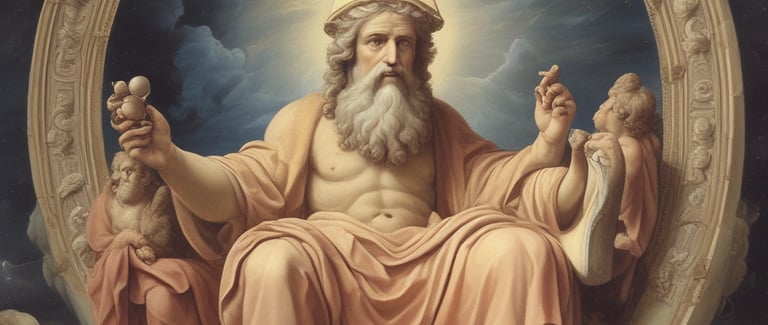What is Plato Theory of Ideal State?
What is justice? Who should rule? Can education create an ideal society? Plato answers these timeless questions through his theory of the Ideal State in The Republic. From the philosopher-king to class harmony and the organic view of society, this post breaks down Plato’s political philosophy in a way that’s relevant even today. A must-read for UPSC aspirants, political science students, and anyone curious about the roots of political thought.
PSIR
7/30/20252 min read


🏛️ Introduction: Plato’s Response to Athenian Chaos
Plato’s theory of the ideal state, outlined in The Republic, is a foundational pillar of classical political philosophy. Reacting to Socrates' execution and the failures of Athenian democracy, Plato proposes a radical vision of governance based on justice, wisdom, and moral excellence, not popular will.
His core question: What makes a just state?
⚖️ Justice Through Functional Specialization
Plato defines justice using the principle of “suum cuique” — to each his own. In a just society:
Everyone performs the role best suited to their nature.
The state mirrors the tripartite soul:
Reason (Logos) → Rulers (Philosopher-Kings)
Spirit (Thumos) → Auxiliaries (Warriors)
Appetite (Epithumia) → Producers (Farmers, Artisans)
🔁 Harmony, not equality, is the foundation of justice.
👑 Philosopher-Kings: Wisdom as the Right to Rule
Plato’s most famous idea is that only philosophers should rule.
Why?
Because:
They alone grasp eternal truths (Theory of Forms).
They've emerged from the Allegory of the Cave, leaving behind illusion to see the Form of Good.
They govern not by opinion (doxa) but by rational wisdom (sophia).
👑 Their goal: moral upliftment, not power.
🏗️ Structure of Plato’s Ideal State
🔺 Rigid Class System (Tripartite Order)
Guardians (Philosopher-Kings)
Selected via 50 years of rigorous education, dialectics, and public service
Guided by reason and the common good
Auxiliaries (Warriors)
Defend the city and enforce laws
Embody courage and loyalty
Producers (Artisans, Farmers, Traders)
Provide material goods
Must practice temperance and avoid political power
🎓 Meritocracy through Education
Education is Plato’s tool to identify and elevate philosopher-rulers.
Key features:
Selection by merit, not birth
Described in Books II–VII of The Republic
Supported by the "Noble Lie" (Myth of Metals) — a political myth suggesting people are born with gold, silver, or bronze souls.
🎯 This myth sustains social cohesion, though it limits real mobility.
🏘️ Community of Property & Family (for Rulers)
To eliminate corruption:
Rulers and warriors live communally.
Private property and families are abolished for them.
Ensures loyalty to the state, not personal gain.
⚠️ This early form of communism is meant to preserve virtue and eliminate conflict of interest.
🎭 Censorship and Cultural Control
Plato believes art, poetry, and stories shape character.
Therefore:
Only morally uplifting content is allowed.
Harmful myths, tragic plays, and immoral music are censored.
This reflects his belief in the educational role of the state.
🔎 Relevance Today: Why Does Plato Still Matter?
Plato’s ideas continue to spark debate on:
📌 Technocracy vs. Democracy
Plato preferred rule by experts, not the masses.
Sparks modern discussions on epistocracy (rule by the knowledgeable).
📌 Merit vs. Heredity
Education as a ladder to governance.
Still relevant in civil service systems and modern meritocracies.
📌 Communitarianism
Plato’s organic view of society echoes in communitarian and welfare theories.
⚔️ Critics Speak: Totalitarian Tendencies?
🟥 Karl Popper's Critique
In The Open Society and Its Enemies, Popper accused Plato of:
Promoting a closed, unchanging society
Undermining individual freedom
Justifying censorship and propaganda
Encouraging elitism and social immobility
He called Plato a "proto-totalitarian" and enemy of democracy.
✅ In Plato’s Defense: Reinterpretation by Modern Scholars
🟢 Leo Strauss sees Plato’s work as philosophical idealism, not policy-making.
🟢 In Laws, a more mature Plato:
Accepts rule of many over rule of one.
Proposes codified laws instead of total reliance on philosophers.
Shows an evolution in Plato’s thought.
🎯 Plato was not dogmatic — he was exploring the best possible system.
🧭 Conclusion: The First Political Philosopher
Plato’s ideal state was not a how-to manual but a moral and philosophical challenge:
What kind of state creates justice, and who should rule?
His influence is lasting, even as his ideas are debated, criticized, and reinterpreted.